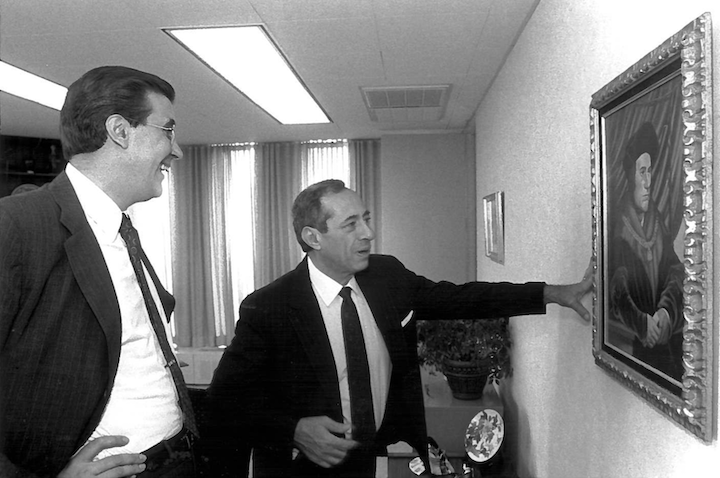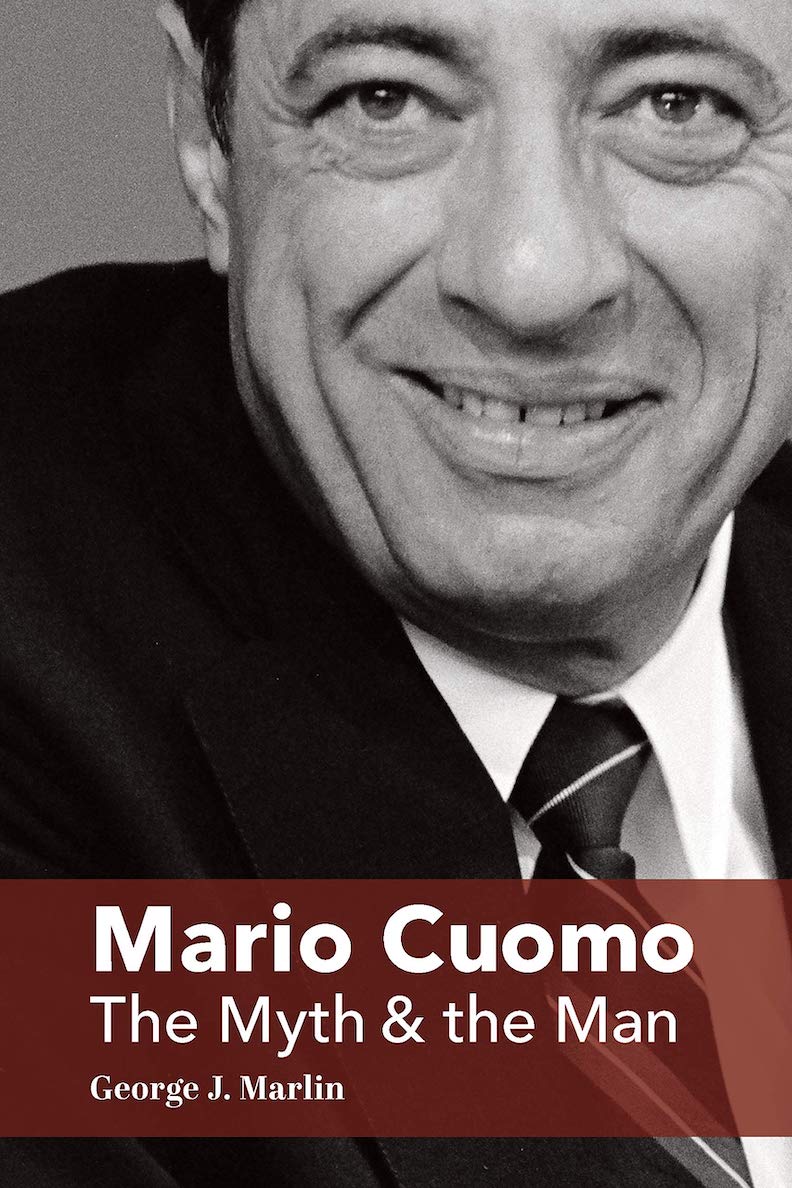Mario Cuomo: The Myth and the Man by George Marlin is an important contribution to our better comprehension of a shameful fact in American political life: a significant percentage of the politicians who are the fiercest proponents of the continuing legalization of abortion on demand are baptized, even Mass-going Catholics, who often make a point of reminding voters of how important religion is in their lives.
Marlin recently drew the thread leading from Mario Cuomo to Joe Biden in these pages. Biden and Cuomo share the same self-imposed dilemma: how to reconcile their profession of faith in the truth of Catholicism and their desire to get elected to high office as candidates of the militantly pro-abortion Democratic Party?
Their answer is to pretend that there is no conflict between their faith and their politics. Indeed, their faith allegedly compels them to support and protect legalized abortion in order to avoid the religiously intolerant attempt to coerce adherence to something that not everyone believes in: Catholic teaching stigmatizing abortion as inherently evil.
To do so they must both minimize the gravity of abortion and reduce the Church’s opposition to this killing of innocent pre-born children to a matter of a sectarian “Catholic” rule that cannot be forced upon our nation, which has a majority of non-Catholic citizens.
So why should a responsible Catholic politician even contemplate trying to “impose” his belief upon the rest of his fellow Americans? By this logic, the Catholic politician has an obligation not to work to end abortion because that would involve trying to make non-Catholics conform to a Catholic teaching when they do not profess Catholicism.
The intellectual incoherence of this position is easily exposed, and Marlin sets forth the devastating critiques that Cuomo received throughout his many years of trying to justify the unjustifiable.
The Church teaches that even mere human reason can show that the destruction of human life in the womb is a grave violation of the right to life of an innocent human being. The state has a strict moral and legal obligation to protect the right to life of those who are subject to its authority. This is a matter of guaranteeing the universal human right to be protected by those in charge of society from acts of violence.
The legal authorization of the killing of unborn children is a horrific offense against justice that should not be treated by anyone, especially by a Catholic who acknowledges God’s law, as a matter on which reasonable men can disagree. Those who support legalized abortion are proponents of what is in fact a criminal practice that destroys innocent lives. There can be no debate on this in a just social order.
Marlin quotes Bishop Austin Vaughan, auxiliary bishop of the Archdiocese of New York, responding to Cuomo’s attempts to justify his support for abortion as compatible with his Catholic Faith: “I find it horrendous, absolutely contradictory for someone to say they are personally opposed to abortion, then to say nobody has fought harder for abortions for poor women. I think for a believing educated Catholic to take the position he’s taken, he takes a very serious risk of going straight to hell.”
Cuomo’s response: “He has a perfect right to curse you to hell, ugly as it is. You [New York Post] have a perfect right to print it. . . .Women have a right to an abortion. I will protect that right as well as I will protect his right to curse me.”
Note that the careful wordsmith Cuomo wildly mischaracterized Vaughan’s warning as cursing him to hell, and leaves out his deprecatory aside “ugly as it is,” when defending the “right to an abortion.” If he had said: “Women have a right to an abortion, ugly as it is” he would have offered a glimmer of evidence that he really was against abortion, that he really accepted Church teaching and tried to live by it.
Marlin quotes Cuomo speaking to The New York Times: “Christ sums it all up for Christians. He gave a doctrine that never mentions abortion. He wasn’t terribly strong on negatives. He prescinded from politics – he refused to register in the zealot party.”

To pretend that Jesus Christ was not against abortion, issued few if any prohibitions, and had nothing to say about politics is blatantly false and self-serving. Yet do we not hear many Catholic proponents of so-called abortion rights advance specious arguments to win votes and reassure the public, especially Catholic voters, that religious people who are as dedicated to their faith as Mario Cuomo was should support legalized abortion?
Marlin sets forth in detail Cuomo’s decades-long effort to portray himself as a true servant of all the people by trying to convince them that he, as a considerate and faithful Catholic, was laudably sparing them from being imposed upon by his religion in the matter of abortion.
This elaborate strategy is still being rolled out by those who value the attainment of power more than their obligation as followers of Jesus Christ to do everything possible to protect innocent unborn children from being legally killed in our country. To support Roe v. Wade is shameful; to attempt to justify that support by claiming that a faithful Catholic must not “impose” his religious beliefs on others is beyond shameful.
How about simply trying to persuade others that the right to life is a fundamental human right, acknowledged as such by believing Catholics and many others? The word “impose” is liberally deployed when politicians do not want to advocate publicly for a position they claim to support personally. They seem to have no trouble, however, “imposing” gay marriage, transgender ideology, and much more, when it suits their purposes.
Bishop Vaughan’s warning to his co-religionist Mario Cuomo should be kept in mind by all like-minded politicians, Catholics especially, who should be much more concerned about what happens when their brief time on the planet comes to an end than about any public prominence they may attain in this world.















